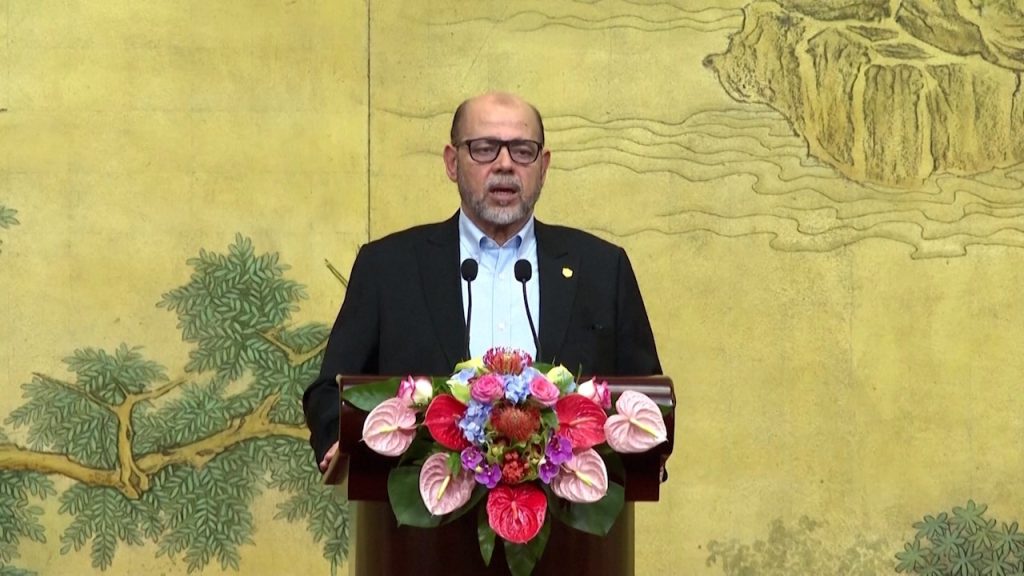Opposing Palestinian factions Hamas and Fatah agreed to form an interim national unity government during negotiations in China. The Beijing Declaration was signed at the closing ceremony of a reconciliation dialogue among 14 Palestinian factions held in China’s capital. Previous efforts by Egypt and other Arab countries to reconcile Hamas and Fatah have failed to end 17 years of power-sharing conflict. It remains to be seen whether this deal will survive the realities on the ground, as previous similar declarations have not been implemented. The agreement marks a diplomatic coup for Beijing and its growing influence in the Middle East after brokering a breakthrough peace deal between Saudi Arabia and Iran last year.
The most important point of the Beijing Declaration was to form a Palestinian national unity government to manage the affairs of Palestinians. The agreement was reached amid attempts to reach a ceasefire for Gaza, with the issue of governance in the Hamas-run enclave being a sticking point. The national unity government would oversee reconstruction and prepare conditions for elections. Israeli Prime Minister Benjamin Netanyahu opposes Hamas having any role in a post-war Gaza administration. Details of the agreement did not specify a timeframe for forming a new government, with Palestinian President Mahmoud Abbas appointing a new government led by a close aide in March.
The agreement signifies a growing influence of China in the Middle East, with Chinese Foreign Minister Wang Yi emphasizing the unity of the Palestine Liberation Organization as the sole legitimate representative of the Palestinian people. The international community is urged to support efforts to form an interim Palestinian government to control Gaza and the West Bank. Hamas and Islamic Jihad, not members of the PLO, demand that any unity deal includes holding an election for the PLO parliament to secure their inclusion. The Islamist groups are at odds with the current PLO over peace accords with Israel. Chinese officials have advocated for the Palestinians in international forums, calling for a larger-scale Israeli-Palestinian peace conference and a specific timetable for a two-state solution.
The agreement in China comes at a time when the Palestinian people are facing a genocidal war, particularly in the Gaza Strip. The declaration was a result of ongoing efforts by rival Palestinian factions to reconcile and end years of disputes. The first round of talks between Hamas and Fatah in Beijing took place in April, with the second round being delayed due to tensions between the two factions. The long-feuding factions have struggled to heal their political disputes since Hamas fighters expelled Fatah from Gaza in 2007. While China has increased its advocacy for the Palestinians in international forums, key stakeholders such as the United States and Israel remain opposed to any role for Hamas in post-war Gaza administration.
While the Beijing Declaration represents a significant diplomatic achievement for China, it remains to be seen whether the agreement will lead to tangible changes on the ground. The formation of a national unity government to manage Palestinian affairs and oversee reconstruction following the war in Gaza is a key aspect of the deal. However, without the approval of key players such as the United States, Israel, and Britain, implementation may face significant challenges. The international community is urged to support efforts to implement the Beijing Declaration and work towards achieving Palestinian independence based on internal reconciliation. The agreement underscores China’s growing influence in the Middle East and its role as a key mediator in regional conflicts.













